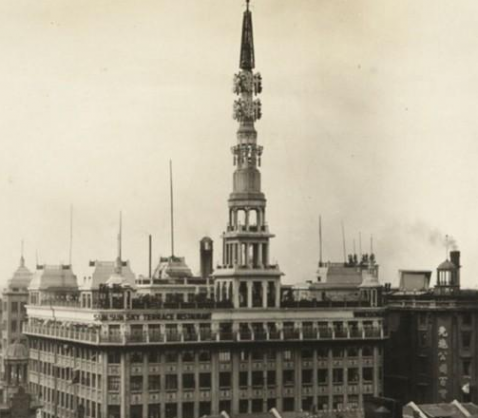On September 24, 1922, the New York Times magazine published the story of Dr. Fong Foo Sec, using this legendary title - "From Coolie Boy to LL.D.". In fact, his story was much more legendary.
1. Childhood
Dr. Fong Foo Sec was born in 1869 to a poor rural family in Guangdong Province. His family had five children. At that time, most poor children started at a very young age to work part-time to support their families. Dr. Fong Foo Sec was no exception. While still being a small child he worked for a dairy factory.
At the age of eight, he was part-time laboring at work and at his village primary school. At that time, some people in the village went to work in the United States and became better off.
In 1881, after consulting with his father, he decided to work in San Francisco and was taken there by his neighbor. In those days, it wasn't easy to make this decision because it was a long way off, and the travel was expensive. The anti-Chinese mood in the United States was high.
2. In the United States
At the age of 12, he finally set foot on the west coast of the United States. It was not warm and friendly Americans who welcomed him, but rather rude ones who threw their rubbish at him.
He lived with his uncle, who sold vegetables, and his first job was as a cook in an American home. His uncle encouraged him to go to night school to learn English, which would be more promising. The school was run by the Pastor of the Chinese Church.
After all, he was a child, playful, and tired of school. Soon he made some bad friends and began to indulge in gambling. Although his uncle was disappointed, he helped him to return to night school to study hard. Back at night school, he met his life's mentor, the future Pastor Chen Cai. Under his influence, Fong became interested in Christianity.
However, he was troubled and worried that when he became a Christian, his family might cut off relations with him. He couldn't give up his family so dared not step through the church door.
However, God's grace was wonderful. While Fong was still indecisive regarding faith, his residence inexplicably caught fire. With the help of Chen Cai he moved into the church. Being so close to the teaching, within half a year, he had decided to be baptized and join the church.
3. Work in the Salvation Army
On one occasion, Dr. Fong Foo Sec met the Salvation Army organization in the street. They attracted him despite being mocked for their warm-hearted preaching. He began to attend the Salvation Army's gatherings frequently, and its sermons about repentance struck a deep chord in his heart. His faith in Christ became very sincere.
The Salvation Army was planning to preach amongst the Chinese, and Dr. Fong Foo Sec was the best candidate. In 1889, he quit his job and began serving in the Salvation Army.
He was first sent to the west coast cities to preach. There he encountered numerous difficulties due to the anti-Chinese campaign at the time. Yet he grew quickly and learned many skills including how to make a speech and how to debate. He was also familiar with the Salvation Army's organizational structure and management style, and was very close to Salvation Army's leaders. When he left in 1897, he was awarded the rank of Salvation Army Lieutenant, the first Chinese to receive the honor.
4. University life
He had always dreamed of going to college but had no savings to pay for his tuition.
By chance, he met Hann, a student at Pomona College in Southern California, with whom he talked about his college dreams. Hann then told the story to Dr. Baldwin, the president of Pomona College at the time, who kept the young man's story in mind. On a visit to San Francisco, he contacted Fong and encouraged him to attend Pomona College where he could solve the tuition problem by working part-time.
By attending Pomona College, he became the first Asian student to be admitted. At the college, he was no longer discriminated against and the mostly Christian professors and students were kind to him.
After five years at Pomona College, he continued his studies at the University of California, Berkeley College. During this time, he also served as a secretary and assistant to the University's YMCA. In 1905, he completed three years of study and work, earned a bachelor's degree, and a scholarship to study literature and education at Columbia University, where he earned a master's degree in education and thereby fulfilling his college dream.
5. Return to China
After completing his studies, Fong was recommended by the Chinese ambassador in Washington to work as an English lecturer at the Guangzhou Foreign Language College.
He first taught English in Guangzhou for a year and in 1907 took the public service examination for the returnees in which he won the title of a sentry, winning third place. He was then assigned to be an official to the post office.
But he did not want to be an official as he wanted to commit to the cause of education. So he accepted an offer from The Commercial Press as the editor-in-chief of the English department. He began to write English textbooks that were acknowledged and adopted throughout the country. They dominated the primary school English textbook market. This also fulfilled his goal of serving his country through English education.
Fong also selected a number of elites through his work at The Commercial Press including Jiang Menglin, president of Peking University, and Guo Weiwen, president of Southeast University.
6. Work in the church
In addition to promoting English education, he also excelled in the Christian cause. In 1909, Dr. Fong suggested that the curriculum standards of church schools should be in line with those of the Chinese Ministry of Education to ensure full acceptance by the Chinese Government. This was supported by the majority of missionaries and he was elected to the Executive Committee of the Education Association. During this period, he published numerous articles on China's education and the development of Christian education in China.
In 1915, Fong, together with Mr. Auburn, president of the Sincere Company, formed the United Church of Guangdong in Shanghai and was ordained as an elder. In addition to Sunday worship, the church also had a medical clinic for the poor, a Sunday school, a Christian Youth Association, and other ministries. Fong also served as the English editor of the Guangdong Concord Church Journal. He actively pursued the self-reliance and development of the Chinese church. He, therefore, participated in the work of the China Renewal Committee, the National Council of Churches, the Christian Society, and the Chinese Christian Church. Of course, he also supported the Salvation Army's founding in China.
Fong had been a member of the YMCA for more than 30 years and had been president of the Association for ten years making him one of the founders of the Association in China.
7. Other social services
His contribution to the promotion of education and social services was remarkable and widely recognized. In 1922, Pomona College awarded him an honorary doctoral degree.
After that, he became further involved in a number of non-governmental charitable organizations. He joined the Rotary Club of Shanghai and eventually became one of the Directors of Rotary International. They promoted for the welfare of Chinese and Shanghai expatriates, including Christmas fundraising, China's School for Blind Children, and relief for civilian refugees.
Dr. Fong also worked with other Christians to promote the establishment of leprosy clinics and launch the "China Mercy Association" to protect the rights and interests of Chinese children. It is also because of the efforts of the association that China has a Children's Day.
In 1937, when Japan invaded, Dr. Fong Foo Sec raised money at home and abroad to help his compatriots fight the war. He humbly said that he and his wife did not do much for the war, but their efforts have been acknowledged and praised.
8. Death
In October 1938, he died of illness at the age of 69.
From Dr. Fong Foo Sec's story, we see the spirit of the YMCA - "to serve, not be served". His Christian character influenced many people including his colleagues. In September 1921, just before the anti-Christianity Movement, he delivered a speech entitled, "Why I Am a Christian".
- Translated by Charlie Li












